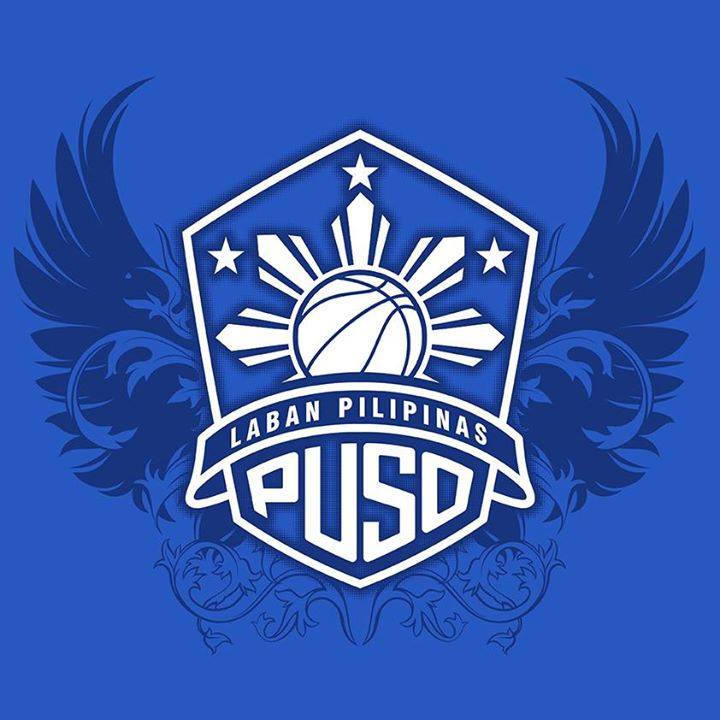2016 marks the retirement of two — literal and symbolic — basketball giants from the national men’s basketball team Gilas Pilipinas as well as the PBA team Tropang TNT. Jayson Castro and Ranidel de Ocampo officially announced their retirements within days of each other just last week, opening up space the bench for the next generation of basketball heroes and leaving their fans in anticipation for what comes next.
PeopleAsia honors these sports superstars with their stories that will continue to inspire anyone and everyone with a dream for years to come.
Ranidel de Ocampo: The Winning Shot
It was a long shot, but it was worth it.
Ranidel de Ocampo grew up in Tanza, Cavite living the simple life with his family. His father was an overseas Filipino worker; his mother kept house. “My kuya (Yancy) got into basketball first. We were always given basketballs as a gift, but I got into the sport when I was about 14. I was already a bit tall back then,†the Philippine Basketball Association player for the Talk ‘N Text Tropang Texters team recalls in the vernacular.
He took his hopes and dreams to the big city, where he was picked to play for the RP Youth Team. “Sumabak ako sa Manila para maglaro (I tried my luck at playing in Manila), even if it was far from where I lived. From the very start, I had a positive mindset,  I worked hard believing it will eventually lead somewhere. It all came with faith and the support of my school, plus those who were around me.â€
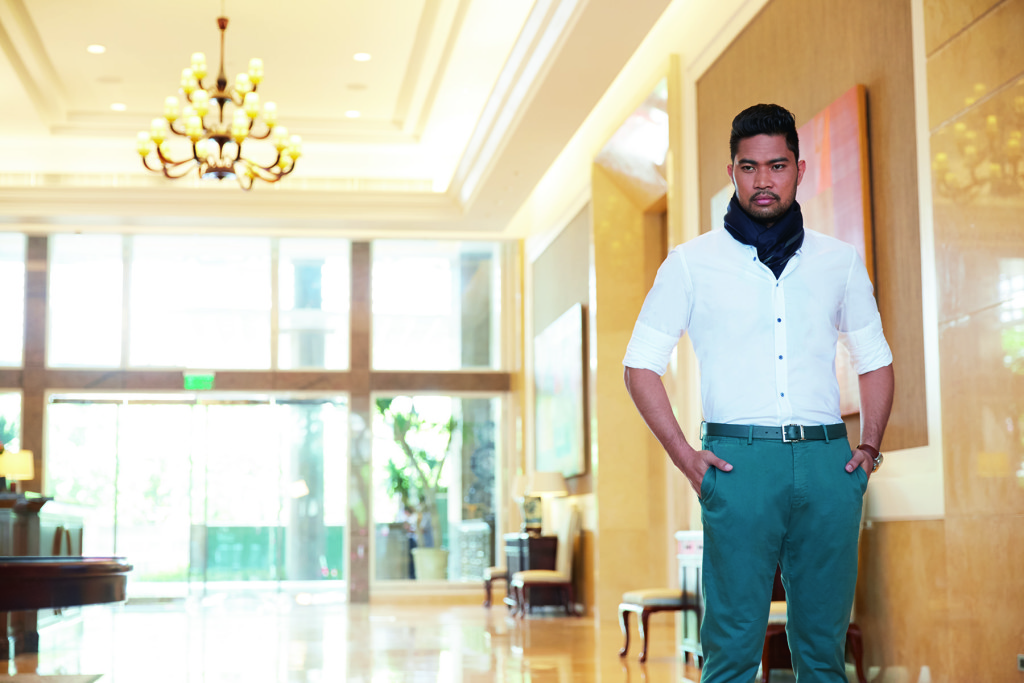
Drive and purpose
His father worked diligently in Saudi Arabia, gaining employment by being a construction worker, bus driver and a heavy equipment operator. “My first dream was simple. I wanted to go to college. Back then, I knew that my parents could only support me as far as high school, because there were four of us,†he shares. “I think that my beginnings gave me the motivation to work harder. Nagba-basketball ako nang may pinaghuhugutan (I played basketball from a place in my heart)â€
Basketball gave him a new goal and he remembers taking it up with a passion. “Once I got into basketball, I watched PBA and NBA games. I memorized how the professional players did it para mahasa ako (so I could be properly trained). Then I applied it to my own game. From somebody who knew nothing about the sport, I improved through the years. I also joined everything — from the school games to the barangay leagues, sa kanto at sa pustahan (in every street corner and even during betting matches),†he grins.
“It’s a big factor being able to play against different types of players na iba-iba ang ugali (who display varied emotions and attitudes). You will learn from that. And you keep learning — I also learned from games where I represented the country abroad.â€
He remembers that he sacrificed a lot in those early days. “There were times when my money was only enough to pay for my jeepney fare. It was a big problem if I have to take two rides. I simply did not have enough,†he recalls.
There were times, too, when he went home hungry, having spent his allowance on transportation to and from his RP Youth Team practices. “I would go home tired, both from school and from practice, yet I still had to do my laundry. I just kept on going because I knew that someday all these sacrifices will help me get somewhere. It was always ‘go lang ng go,’†he remarks.
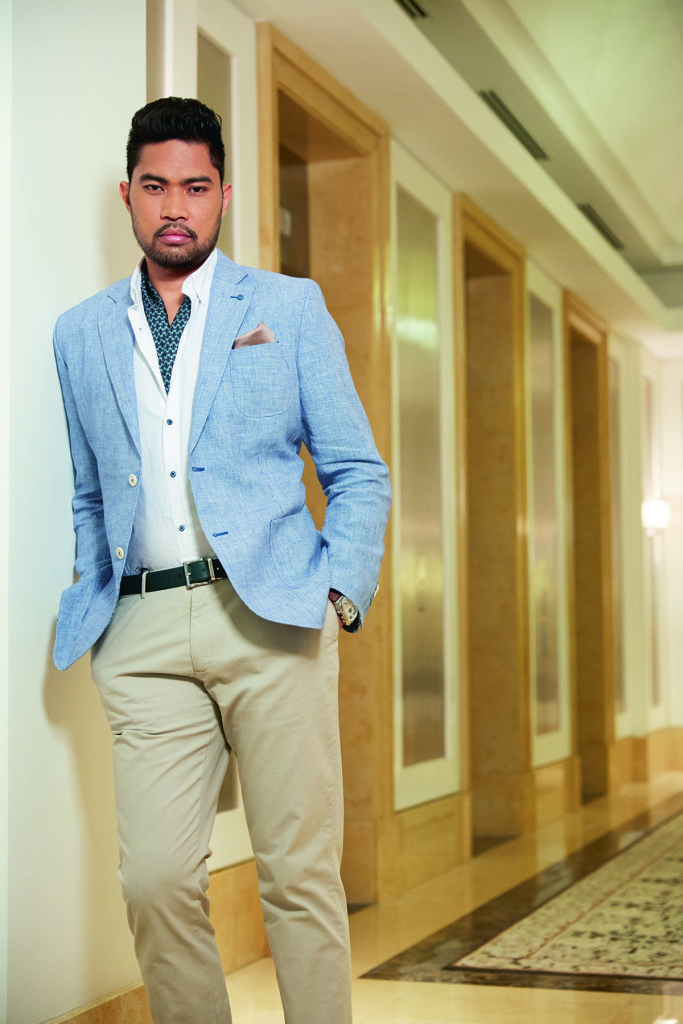
These hardships helped form his character, and gave him the drive and determination to win. Soon, his efforts paid off. Ranidel was awarded four times as the NCAA Most Valuable Player, and thrice as the MVP of the PBA, the most recent of which was the 2015 Commissioner’s Cup.
He was also part of the Gilas Pilipinas team that brought Filipino pride to the fore as it defeated South Korea in the 2013 FIBA Asia Championship and earned a ticket to compete in the 2014 FIBA Basketball World Cup.
“Kapag Pilipinas na ang dinadala mo, ibang usapan na iyan eh (It’s an entirely different story when you carry the name of the Philippines).â€
Slam dunk to success
He still cannot believe his success, but Ranidel remains humble despite all the success that he has achieved.
This holds true, particularly when he was chosen to be the league’s MVP. The 6’5†moreno hunk took the microphone and shared credit with his teammates.
“Lahat kami dito MVP. Lahat kami nagtutulungan (We here are all MVPs; that’s because we all helped each other),†he asserts. Then Ranidel proceeded to thank his wife, who has been very supportive; the fans, the Talk ‘N Text executives and everybody on the planet. “Pati na rin ang mga aliens, (including the aliens)†he joked. Yes, though he may look serious and focused on the court, this guy knows how to get his guffaws.
He still goes home to Cavite, staying in touch with his roots. He was also able to build his mother a new house. “My father passed away in 2006. He wasn’t able to witness things like my playing in the FIBA. I’m sure he would have been very proud,†he shares.
He cannot underscore enough the values of humility and teamwork, in order to be successful in life, whether on the court or out of it. “A team’s players should work together. Sama-sama, buong-buo (united as one and as a whole) — that is how it must be. You could see that in our team and in the team that we played against in the finals, the Rain or Shine Elasto Painters. It is not about having star players. Every little bit counts because it becomes something big when you put it all together,†concludes our deserving MVP.
Ranidel de Ocampo was given a PeopleAsia Men Who Matter award in 2010.Â
(By MAAN D’ASIS PAMARAN | Photography by DAN YUSAY HARVEY | Styling by ROKO ARCEO, Grooming by SARI CAMPOS and EDDIE MAR CABILTES | PeopleAsia June – July 2010)
Jayson Castro: Clear as “The Blurâ€
Even in Asia, where Jayson Castro battles alongside his Gilas brethren against more highly fancied powerhouse teams, his game has earned awe and respect. He has been named twice to the International Basketball Federation’s (FIBA) All-Star Selection and included in the Mythical Five of the 2015 William Jones Cup.
When the Philippines waged a campaign in the FIBA Asian Championship last October, Jayson proved why he is widely regarded as the best point guard in the region. His well-deserved selection into the Mythical Five was behind a 16.7-point average that fueled Gilas to a silver-medal finish. Though it was a definite heartbreak for a nation whose love affair with basketball will never end, the sight of our men fighting with all their hearts, physically tired in an arena that cheered against their will, is doubtless forever cemented in the nation’s memory.
“I just wish we came home with the gold medal instead of my Mythical Five selection,†Jayson tells PeopleAsia in the vernacular. “That was our main goal, to win that gold.†When the team flew back home, the star point guard was welcomed with cheers. Fans were chanting “Castro for senator!†It’s not easy to be a hero in the Philippines — and even harder to be a basketball hero.
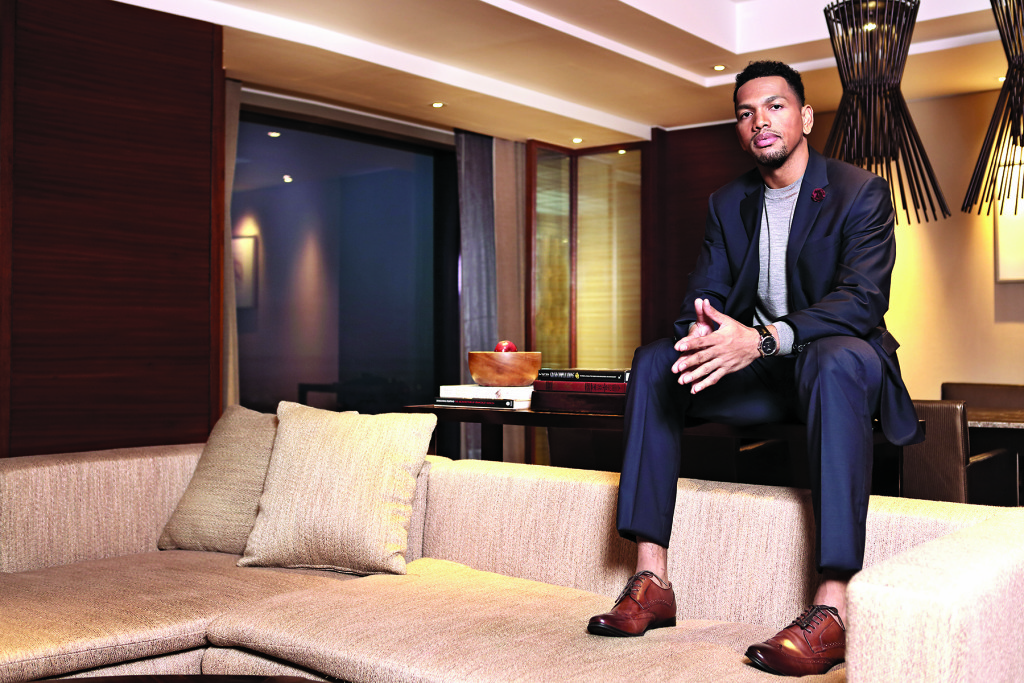
Basketball every dayÂ
Growing up, there was plenty of basketball to be played in his hometown of Guagua, Pampanga. “The sport was very popular in our neighborhood,†Jayson, who is fluent in Kapampangan, recalls. “When they invited me to play, I wasn’t really interested at first. But when I started learning, I wanted to play every day!â€
It was time well spent for the eldest of four children who grew up away from his mother and siblings (who were in the US). The multi-awarded player was raised by his maternal grandparents and aunts. After his parents divorced, Jayson chose to use his mother’s surname. In international competitions, though, he uses William.
After high school, he went to Manila upon an invitation to play for the Philippine Christian University (PCU). It was a whole new ballgame in the city, Jayson avers.
“It was hard for a 16-year-old,†he admits. “I had teammates who were much older, stronger than me. But after my first year, I was able to adjust to the game’s physicality and intensity. Little by little, I was taught defensive skills and the fundamentals of being a guard.â€
After collegiate basketball, the three-time NCAA Mythical Five awardee joined the Philippine Basketball League (PBL) where he says he “encountered more mature players.†Jayson reveals, “At first, it was really intimidating to go against players you respect. But I told myself that I needed to compete if I wanted to realize my dream to make it to the PBA.â€
Olympic dreams
In 2014, Jayson was included in the list of the 40 Greatest Players in PBA History, along with league greats Benjie Paras, Alvin Patrimonio and Robert Jaworski.
“I’m very blessed to be included but at the same time, I feel pressured,†confesses the PBA 5,000-point-club member. “I appreciate that they saw my contributions already. But I still want to do many things. I always ask myself what’s next.â€
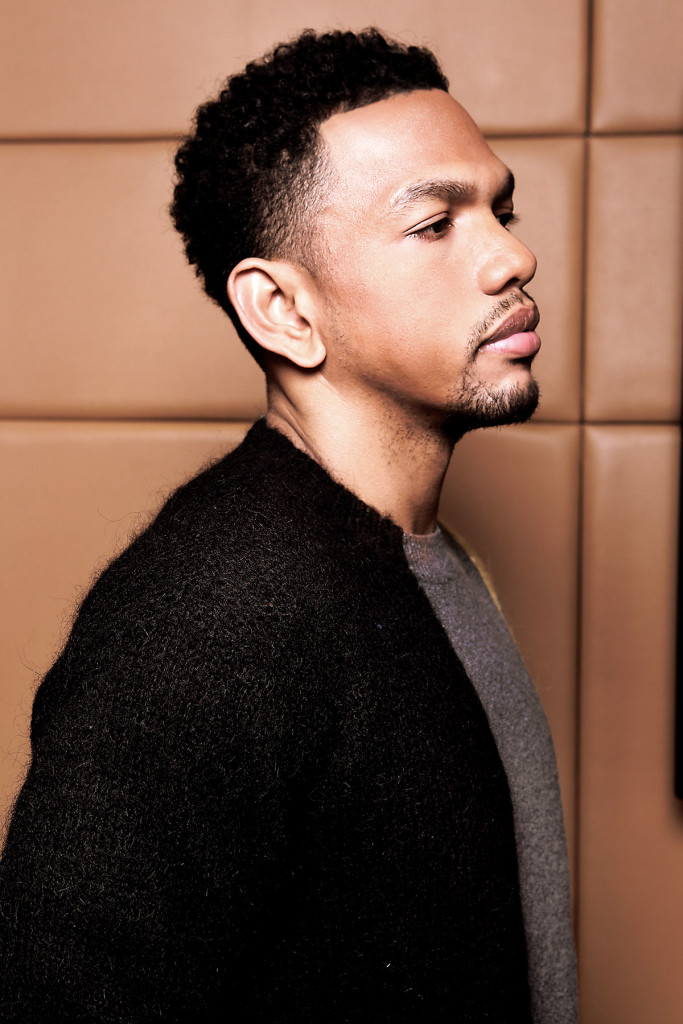
This includes that Olympic dream that he believes can be achieved through hard work. “It’s hardest to play for the national team, but there is really pride in it,†says the Derek Rose and Chauncey Billups fan. “You really play for our flag and our country. We don’t mind how hard a task it is. There is pressure because everyone in the Philippines is watching you, but I am really happy to be a part of it because we are able to give joy.â€
“Kids tell me they want to be a ‘Jayson Castro’ but I always remind them that they have to study very hard first. My only goal before was to get a scholarship and finish school. After that, someone just told me to improve my skills because I may have a chance in the PBA.â€
Even for his firstborn (David Elli), he says he wants to instill the value of education before basketball. “A lot of people have asked me why I still want to study even when I’m already earning in the PBA,†he declares. “But I want to be successful even after my basketball career. Even after I graduate, I still plan to study.â€
While they are a blessing, Jayson Castro maintains that trophies and awards do not define him. Humble and reserved even after everything he has achieved, he is content to fly under the radar — something that observers have latched on. Many say Jayson is under-appreciated; an overachiever who shuns the limelight.
“Maybe,†he replies with a smile. “But it’s really not a big deal to me. I’m really not the type who seeks attention. As long as I’m doing my job, I’ll give my best, whatever happens. If they want to give me an award or not, it’s okay. For me, it’s all about the team winning. I’m really a team player. Whether they appreciate me or not, it’s okay with me.â€
Hard not to cheer for that.
Jayson Castro was given a PeopleAsia People of the Year Award in 2015.Â
(By JOYCE REYES-AGUILA | PeopleAsia December 2015 – January 2016)

